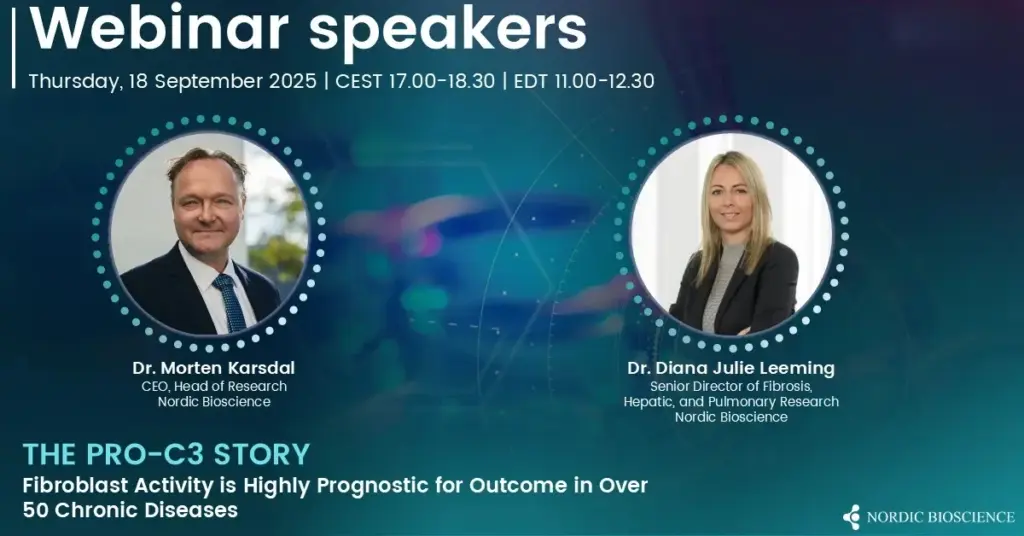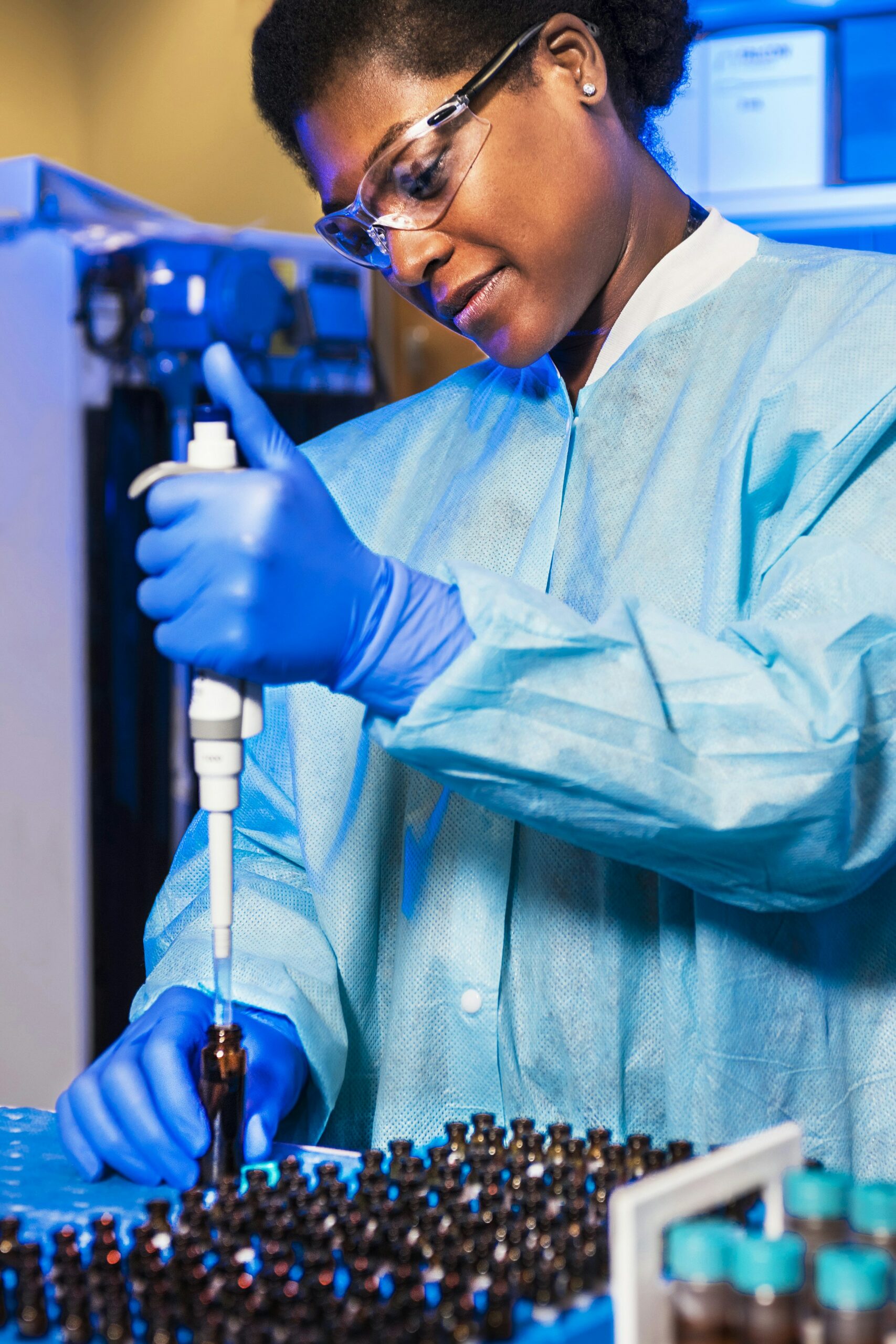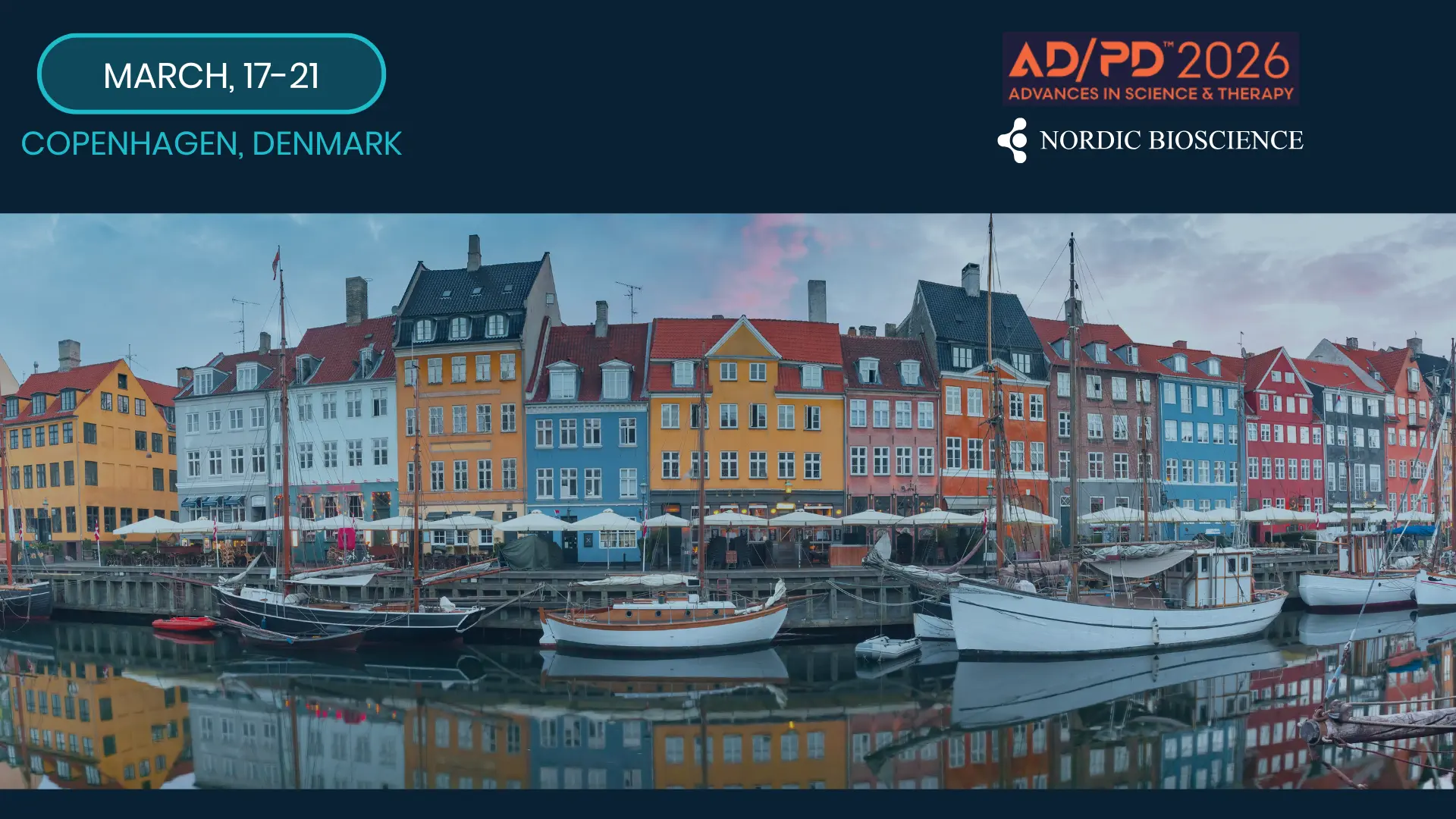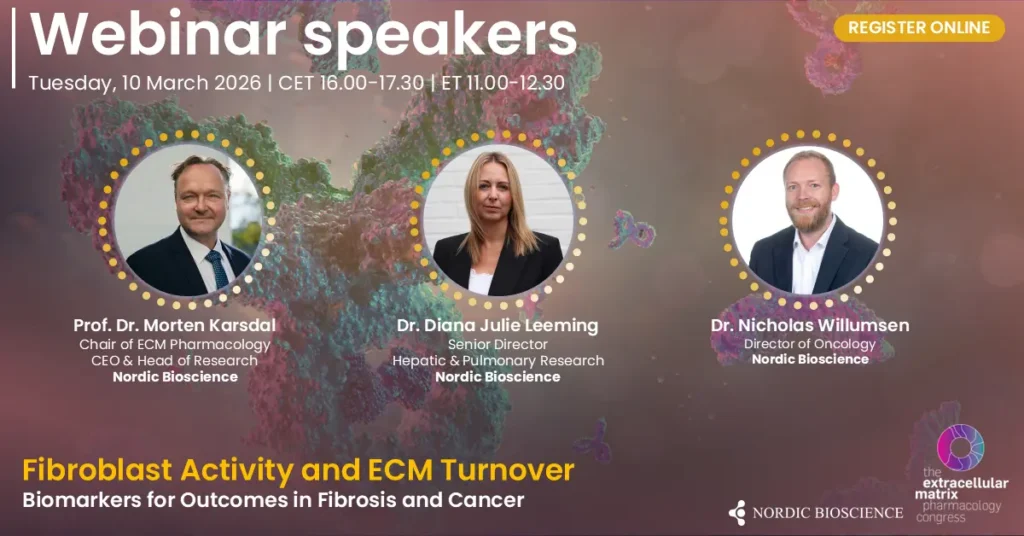The PRO-C3 Story | Webinar
September 23, 2025
Fibroblast Activity is Highly Prognostic for Outcome in Over 50 Chronic Diseases
Overview
Fibroblast activity is a major cause of 35% of deaths in the Western world. Fibroblasts are key drivers of outcome in solid tumors as well as in fibrosis of the liver, lung, kidney, intestine, skin, and in heart failure. To alter the trajectory of organ failure and patient outcomes, we must quantify and change fibroblast activity.
One measure of fibroblast activity is PRO-C3, which was launched by Roche in May 2025 with a Context of Use (COU) as a diagnostic enrichment tool for liver fibrosis -a milestone in the field of biomarker discovery and development.
This webinar highlights the process of how an ELISA kit was advanced through CLSI validation into an RPA prototype assay with Roche, moving to IVD quality on the flagship 801 equipment, and gathering data for CE launch. At the same time, it was submitted to the FDA for: 1) a Letter of Intent, 2) qualification advice, and 3) a full qualification package under the LITMUS consortium.
This work resulted in an FDA Letter of Support—the first ever for a serological biomarker for the assessment of tumor fibrosis. This is a story of the work of hundreds of researchers and remarkable teamwork that would not have been possible without extraordinary stamina.

This webinar is a celebration of the PRO-C3 story and all the people involved. We highlight the best diagnostic, prognostic, and pharmacodynamic data, demonstrating how dangerous fibroblast activity is for patients, as well as the role of PRO-C3 in drug development across a range of indications where the extracellular matrix is a key component. From cellular mechanisms to serological assessment in patients—this is about how to quantify and control fibroblast activity.
Naturally, we also discuss weight-dependent and weight-independent approaches to modulating fibroblast activity, and the challenges and opportunities that follow.
Agenda
1. Introduction
- Welcome and overview of webinar objectives
- The clinical burden of fibroblast activity in chronic diseases
- Framing fibroblast biology as a therapeutic target
2. The PRO-C3 Biomarker
- What PRO-C3 measures: Active fibrogenesis and fibroblast activity
- Initial development and academic validation of the ELISA
- Translating research use into regulated diagnostics
3. Roche Collaboration and Industrialization
- Transitioning from ELISA to RPA prototype assay
- Validation to IVD standard on Roche 801 platform
- CLSI validation and CE marking process
4. Regulatory Milestones
- FDA engagement: Letter of Intent, Qualification advice, Full qualification package (under LITMUS)
- FDA Letter of Support: First for a serological tumor fibrosis biomarker
5. Clinical and Translational Applications
- Diagnostic, prognostic, and pharmacodynamic performance across diseases
- Use of PRO-C3 in liver fibrosis, tumor stroma, pulmonary and renal fibrosis
- Patient stratification and trial enrichment strategies
6. Mechanistic Insights and Modulation Strategies
- Fibroblast activity: Weight-dependent vs. weight-independent pathways
- Implications for therapeutic intervention design
7. Lessons from the PRO-C3 Development Journey
- Multi-disciplinary collaboration and sustained execution
- Integrating biomarker science, regulatory strategy, and platform scaling
- Opportunities for other biomarkers following a similar path
8. Q&A and Closing Remarks
- Open discussion with Dr. Morten Karsdal and Dr. Diana J. Leeming
- Final reflections on the future of fibroblast-targeted biomarker development
Speakers
Dr. Morten Karsdal
- Dr. Morten Karsdal joined Nordic Bioscience in 2001 and became CEO in June 2010, leading the company to significant advancements in biomarker development and disease biology.
- Dr. Karsdal is a KOL in extracellular matrix research, with more than 700 publication and an impressive H-factor of 100.
- Dr. Karsdal is an honorary professor of inflammation research at the University of Southern Denmark, where he continues to supervise PhD students, fostering the next generation of researchers.
- Dr. Karsdal chairs the Extracellular Matrix Pharmacology Congress, an important forum for advancing drug development by focusing on the extracellular matrix (ECM) as a key factor in most chronic diseases. He is renowned for his deep expertise in fibrosis, rheumatology (including rheumatoid arthritis and osteoarthritis), diabetes, and other chronic conditions, particularly in relation to ECM and biomarker research.
- Dr. Karsdal has led the development of FDA-approved and supported molecular diagnostics, as well as more than 100 commercialized biomarker assays, including ELISA assays and high precision automated platforms.
- He has extensive experience in clinical trial design and the clinical application of biochemical markers, often serving as a consultant to major pharmaceutical companies for the use of serological biomarkers in clinical trials.
- In 2016, he and his research team authored the first edition of “Biochemistry of Collagens, Laminins and Elastin,” published by Elsevier Science. The book, now in its 3rd edition as of 2023, is a key resource on collagens and structural proteins, with a focus on their applications in chronic diseases.
Dr. Diana Julie Leeming
- Dr. Diana Julie Leeming is the Senior Director of Fibrosis, Hepatic, and Pulmonary Research at Nordic Bioscience.
- She joined Nordic Bioscience in 2004 and assumed the role of Director of Fibrosis in 2010, later being promoted to Senior Director in 2024.
- Dr. Leeming focuses on developing serologically assessed markers to evaluate extracellular matrix remodeling in patients with pulmonary or hepatic fibrosis, aiding in diagnosis and pharmacodynamic evaluation.
- She is a principal inventor of the PRO-C3 assay, a fibrogenesis marker utilized in multiple clinical trial studies.
- Dr. Leeming has authored over 280 peer-reviewed publications, demonstrating her extensive contributions to the field.
- Her H-index is 61, her I10-index is 174, and her research has garnered over 11,825 citations as of March 2024.
The webinar was organized exclusively by Nordic Bioscience.




